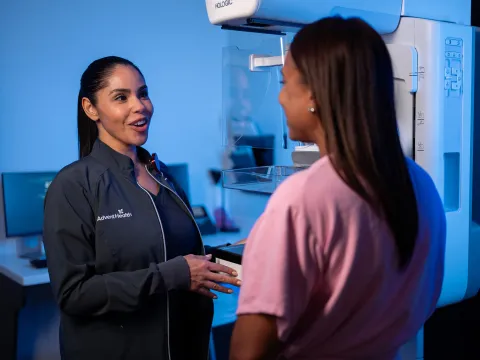- AdventHealth

Choose the health content that’s right for you, and get it delivered right in your inbox.
Did you know that around 790,000 total knee replacements and 544,000 hip replacements are performed each year? Total joint replacement surgery is one of the safest and most reliable treatments available. If you find that over time, your knees or hips have become arthritic and painful, knee or hip replacement surgery might be the best option for you.
Knees, hips and shoulders are now replaceable through advanced technology and leading-edge surgical techniques. We’re here to explain the criteria for joint replacement surgery candidacy, the benefits of having the surgery and what to expect before and after your procedure.
Who Needs Knee or Hip Replacement Surgery?
Patients suffering from severe arthritis in their knee or hip long term and have exhausted all conservative treatment options are prime candidates for joint replacement surgery.
Conservative treatment options generally include some or all of the following:
- Anti-inflammatory medications
- Cortisone injections
- Physical therapy
- Viscosupplementation or gel injections
- Weight loss
Once all these conservative treatment options have been tried and are no longer successful, it’s time to start looking at joint replacement surgery as your best option for maintaining your normal, active lifestyle and well-being.
What to Expect Before and After Joint Replacement Surgery
Before Surgery
After conservative treatment has proven ineffective and you’ve decided to go with the surgical route, your doctor will need to clear you for surgery. Once that’s done, it’s a quick and convenient procedure. Most knee and hip replacement surgeries are outpatient procedures that occasionally require a one-night hospital stay to recover under observation.
Before surgery, a CT scan may be required to image your joint so that an identical, arthritis-free prosthetic joint can be customized for you. These important steps of the replacement process not only leave you with a joint that best matches your anatomy but also have been shown to improve healing and recovery time, as well as make for better long-term comfort.
Our multi-disciplinary teams at AdventHealth use advanced techniques to provide a coordinated pathway to personalized care, ensuring you receive the treatment you deserve.
After Surgery
Physical therapy after surgery is essential to recovery.
The surgery usually lasts less than an hour, and recovery takes place at home. For the first two to three weeks, home health care will visit you to provide physical therapy as needed, and after that, most patients will require an additional three weeks of outpatient PT at one of our many convenient clinics.
At this point, the healing process is about 70 to 80% complete. After three months, you should be about 90% recovered, with total normality restored within six months to a year.
Benefits of Joint Replacement Surgery
According to the National Library of Medicine, total joint replacement surgery positively affects quality of life for up to five years. Other benefits of this surgery include:
- A more comfortable and faster recovery
- Improved joint mobility
- Less pain and blood loss
- Lower infection rates
We know joint replacement surgery can be unnerving, but the benefits outweigh the risks. You can count on our orthopedic specialists to help relieve your pain and improve your quality of life.
Personalized, Coordinated Care
With nationally recognized, board-certified experts and the latest minimally invasive orthopedic treatments, we have the tools and the expertise to find long-term solutions for you.
Visit us here to schedule an appointment or to learn more about our orthopedic care services. You deserve to feel whole.




